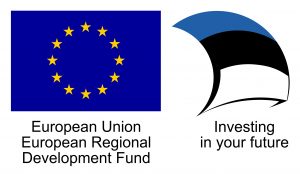Warning: Attempt to read property "ID" on string in /data01/virt90603/domeenid/www.ktkdk.edu.ee/htdocs/wp-content/themes/ktkdk/single-event.php on line 15
POSTPONED: Interdisciplinary seminar of Estonian Graduate School of Culture Studies and Arts. Posthuman Studies
Warning: Attempt to read property "ID" on string in /data01/virt90603/domeenid/www.ktkdk.edu.ee/htdocs/wp-content/themes/ktkdk/single-event.php on line 38
Warning: Attempt to read property "occurrence_id" on string in /data01/virt90603/domeenid/www.ktkdk.edu.ee/htdocs/wp-content/themes/ktkdk/single-event.php on line 38
20/04
Warning: Attempt to read property "ID" on string in /data01/virt90603/domeenid/www.ktkdk.edu.ee/htdocs/wp-content/themes/ktkdk/single-event.php on line 49
Warning: Attempt to read property "occurrence_id" on string in /data01/virt90603/domeenid/www.ktkdk.edu.ee/htdocs/wp-content/themes/ktkdk/single-event.php on line 49
0:00
POSTPONED TO THE AUTUMN SEMESTER.
Exact dates will be announced closer to autumn.
Interdisciplinary seminar of Estonian Graduate School of Culture Studies and Arts
Posthuman Studies
Guest lecturer: Stefan Lorenz Sorgner, Professor of Philosophy at John Cabot University in Rome and the Director of the Beyond Humanism Network
Dates and time: 20–21 April 2020
Venue: Tallinn University, Uus-Sadama 5 [room to be added]
Credits: 2 ECTS
Language of the course: English
Hosting institutions: Tallinn University; Estonian Graduate School of Culture Studies and Arts
Presentation
This intensive seminar introduces students to some of the most important ethical, philosophical, and artistic questions raised by the rapid technological, scientific, and cultural changes of our era. Students will tackle issues such as biological and genetic enhancement, artificial intelligence, the impacts of new media, and the future of employment in a technology-based society, exploring how these issues take us beyond the standard capacities and dualistic concepts of ‘human’ beings (as disembodied ‘minds’, for instance) into a ‘posthuman’ future. Students will examine the approaches that thinkers such as Katherine Hayles and Julian Savulescu have proposed for grappling with these issues.
About the guest lecturer:
Prof. Dr. Stefan Lorenz Sorgner is a tenured philosophy professor at John Cabot University in Rome and the director and co-founder of the Beyond Humanism Network, a Fellow at the Institute for Ethics and Emerging Technologies (IEET), a Research Fellow at the Ewha Institute for the Humanities at Ewha Womans University in Seoul and a Visiting Fellow at the Ethics Centre of the Friedrich-Schiller-University in Jena. He is the editor of more than 10 essay collections as well as the sole author of the following monographs: Metaphysics without Truth (Marquette University Press 2007), Menschenwürde nach Nietzsche (WBG 2010), Transhumanismus (Herder 2016), Schöner neuer Mensch (Nicolai, 2018), Übermensch (Schwabe 2019). In addition, he is Editor-in-Chief and Founding Editor of the Journal of Posthuman Studies (published by Penn State University Press since 2017). You find some more detailed information on his personal website: www.sorgner.de.
Programme
Day 1 (Monday, 20 April 2020)
11am-12.30pm: 1. What is the difference between trans- and critical posthumanism
12.30pm-2pm: Lunch
2pm-3.30pm: 2. What is the non-dualist understanding of human beings
3.30pm-5pm: 3. AI as social, cultural and ethical challenge
Day 2 (Tuesday, 21 April 2020)
11am-12.30pm: 4. Cyborgs as social, cultural and ethical challenge
12.30pm-2pm: Lunch
2pm-3.30pm 5. Genome editing as social, cultural and ethical challenge
3.30pm-5pm 6. The arts and the posthuman
Learning outcomes
By the end of the course the participants will be able to:
• recognize and analyze posthuman studies issues;
• analyze relevant recent cases, along with specific positions and arguments regarding them;
• analyze and employ broader theoretical approaches, debates and concepts in posthuman studies;
• develop informed, reasoned positions regarding these issues, cases and broader theoretical aspects;
• explain and analyze course material orally and in written forms;
• make appropriate use of original and academic resources and undertake guided research work.
Readings:
All participants should read the following chapters from this book: Post- and Transhumanism, edited by Robert Ranisch and Stefan Lorenz Sorgner (Peter Lang 2014).
Robert Ranisch & Stefan Lorenz Sorgner, “Introducing Post- and Transhumanism”, pp. 7–28
Stefan Lorenz Sorgner, “Pedigrees”, pp. 29–48
Hava Tirosh-Samuelson, “Religion”, pp. 49–72
Yunus Tuncel, “Nietzsche”, pp. 83–99
James Hughes, “Politics”, pp. 133–148
Robert Ranisch, “Morality”, pp. 149–172
Francesca Ferrando, “The Body”, pp. 213–225
Andy Miah, “Bioart”, pp. 227–240
Stefan Lorenz Sorgner, “Music”, pp. 299–310.
Requirements for participation
Reading the required book chapters is the prerequisite for participating in the course. The full book will be provided electronically to all registered participants.
Interested graduate students can apply for the seminar by filling out the registration form by 10 April 2020 at this link: https://docs.google.com/forms/d/e/1FAIpQLScP7AyEa5EUVY-1pmA5xdzm3qg-3-MHsX_PQ_4EtCta354IqA/viewform.
The maximum number of seminar participants is 25 and students will be notified of their acceptance to attend the course.
2 ECTS credits will be awarded upon participating in the seminar on both days and reading the required book.
Participation in the course is free of charge. Accommodation and travel costs of the students of GSCSA will be reimbursed. If you have registered but are unable to attend you are required to let the organisers know.
Contact: ktkdk@tlu.ee
The event is supported by the (European Union) European Regional Development Fund (Tallinn University’s ASTRA project, TLU TEE – Tallinn University as a promoter of intelligent lifestyle).
